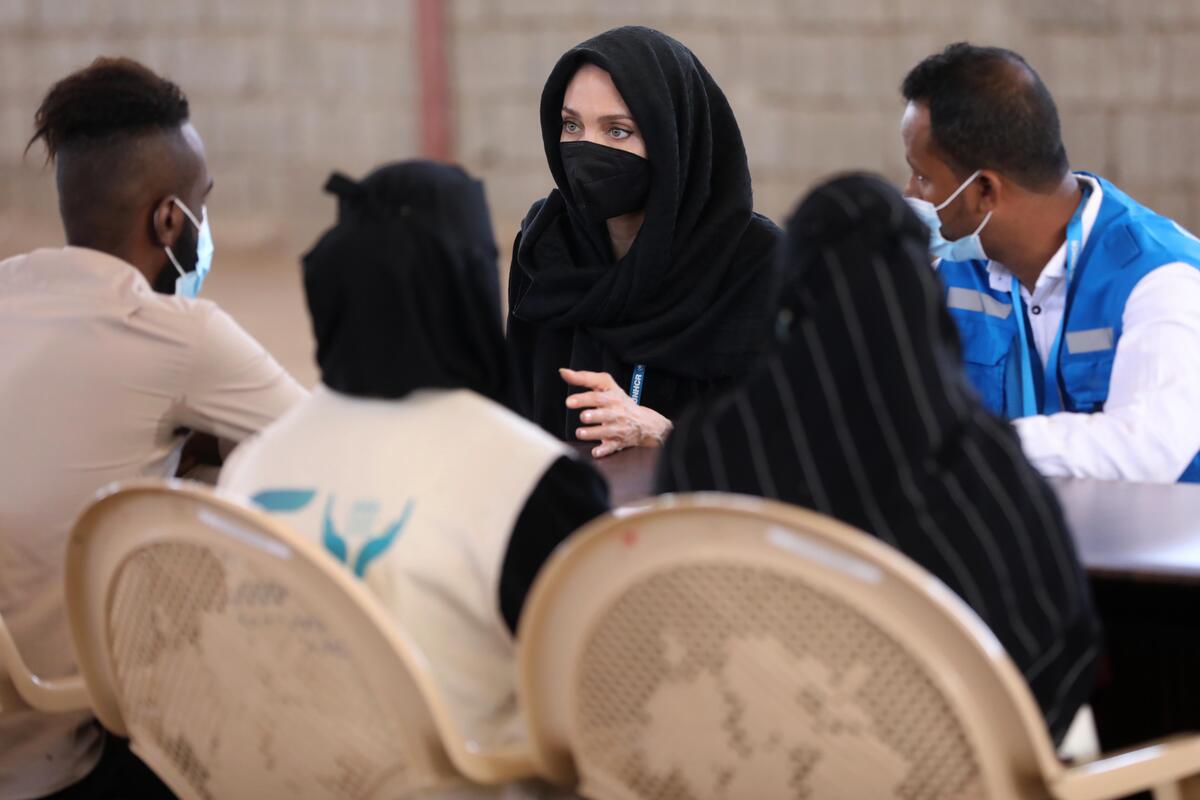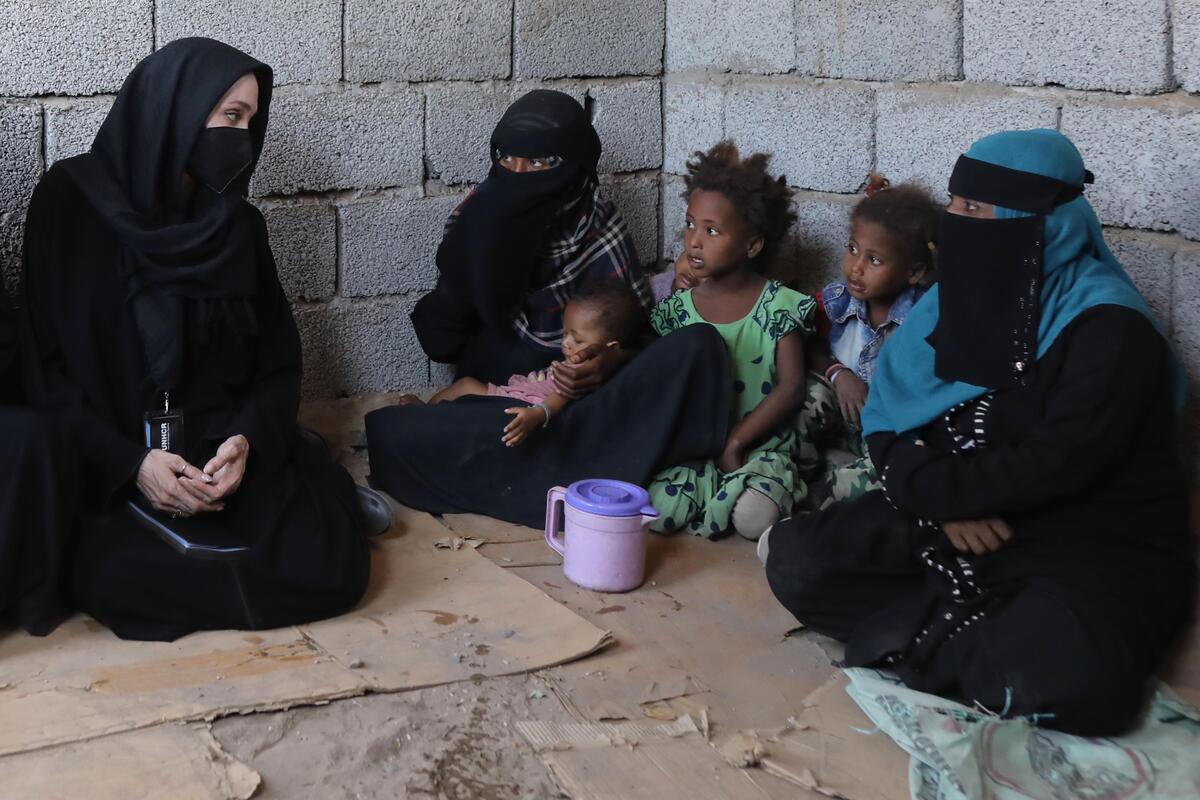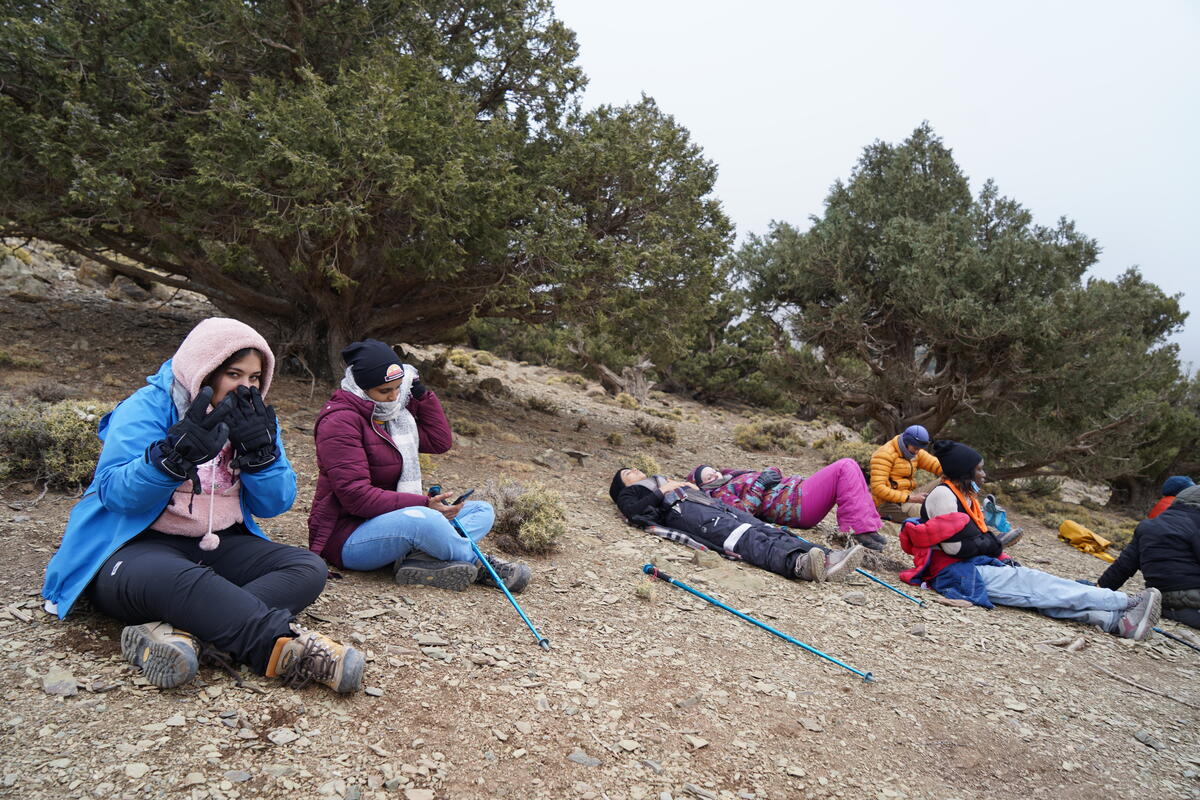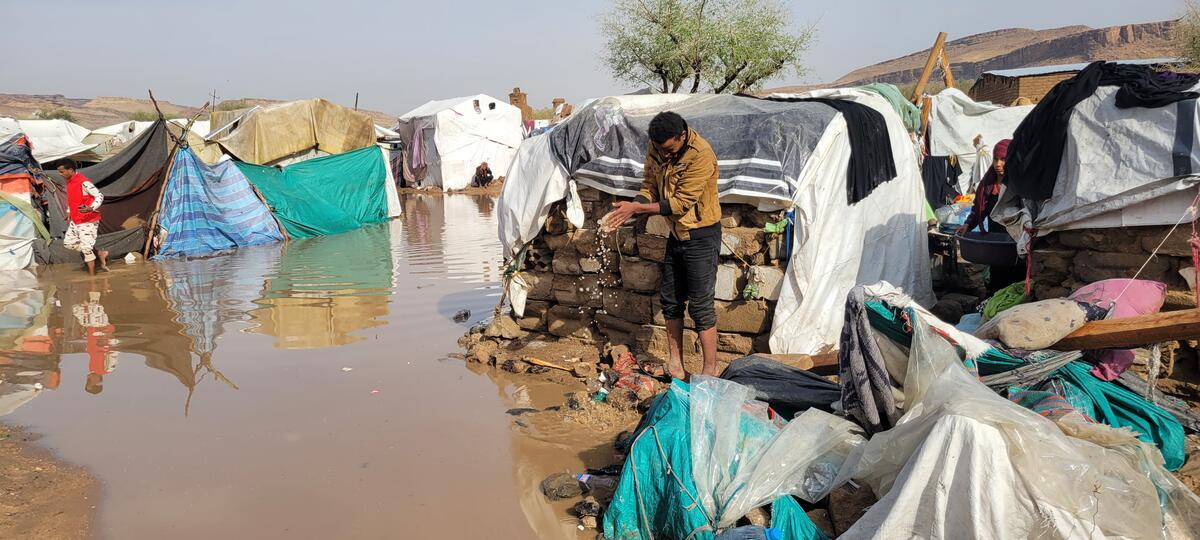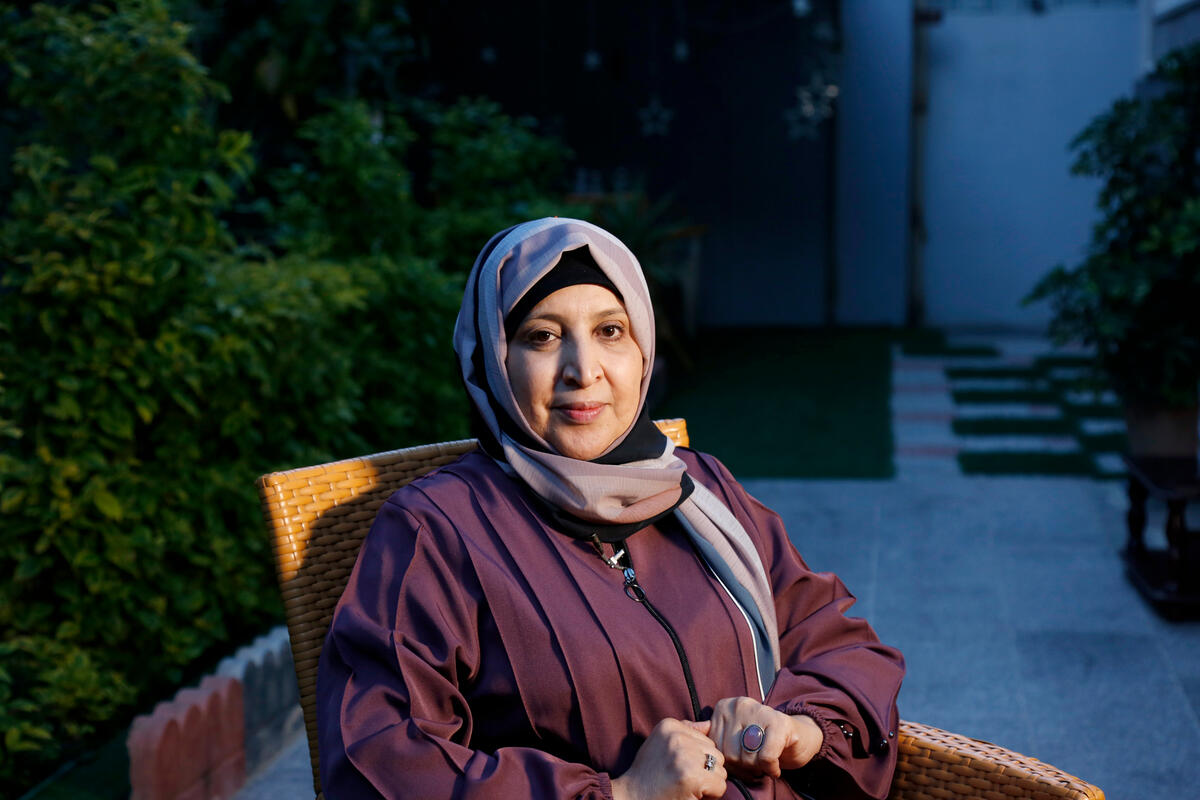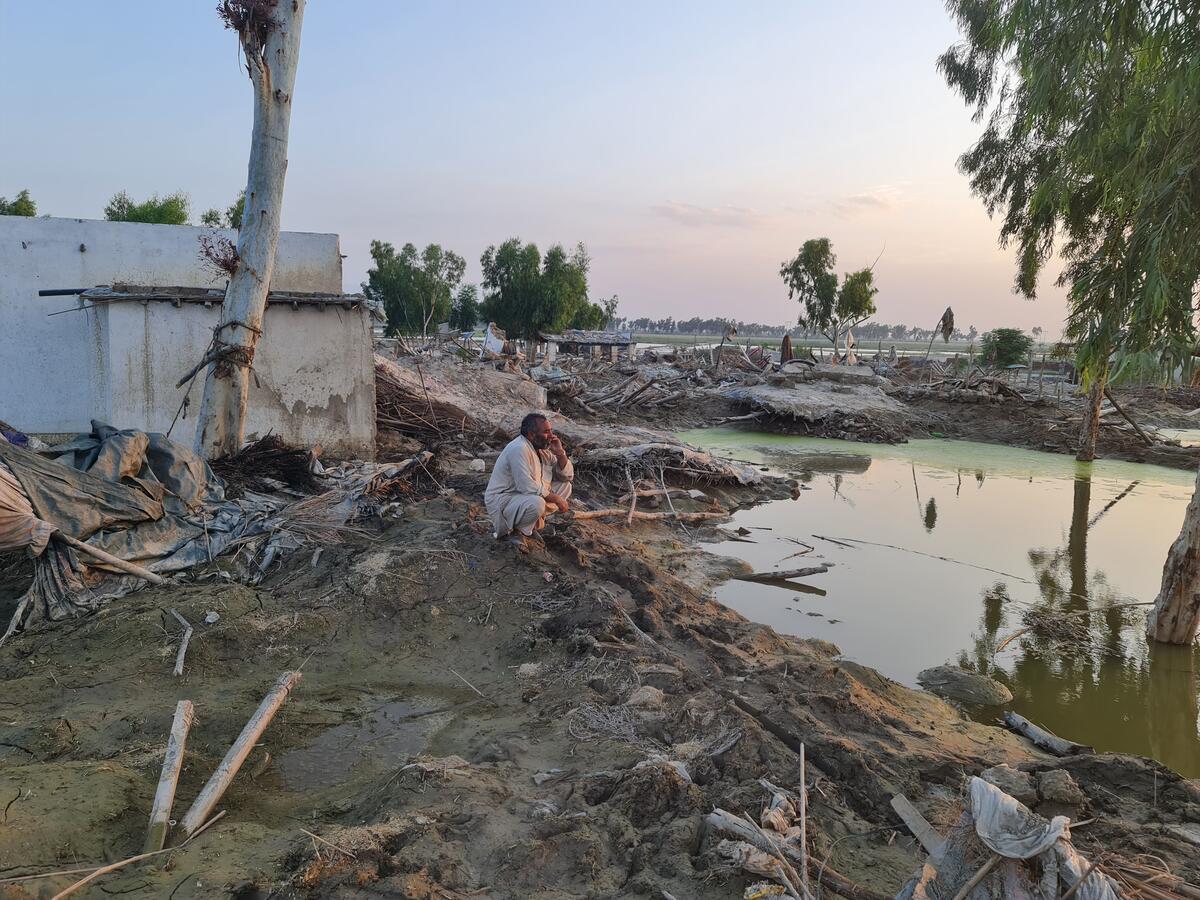UNHCR reports some 900 refugee arrivals in Horn of Africa from Yemen, operations inside Yemen continue
UNHCR reports some 900 refugee arrivals in Horn of Africa from Yemen, operations inside Yemen continue
With the escalation in Yemen's conflict, UNHCR is seeing a rise in people fleeing by boat across the Gulf of Aden to countries in the Horn of Africa - historically a route travelled by refugees and migrants headed in the opposite direction, ie to Yemen. Over the last 10 days 317 Yemeni refugees have arrived at Obock in Djibouti. In Somalia's Puntland, at Bossaso port, and Somaliland, at Berbera and Lughaya ports (around 200 km west of Berbera), we have seen 582 arrivals, the vast majority Somalis but also Yemenis and a small number of Ethiopian and Djiboutian nationals. They all received food and water, and health and medical checks on arrival.
The refugees tell us many more people are trying to leave Yemen but are being prevented from doing so by fuel shortages and high fees charged by boat operators. Ports are said to be closed and boats not allowed to depart. A Somali man who was separated from his wife and daughter while fleeing bombing in Basatin district, in Aden city said he had been in hiding for three days in the port before managing to board a boat to safety. Among those with him on the 24-hour boat journey were an Ethiopian woman, recognized as a refugee in Yemen in 2002, and her three children. She said she did not have to wait as smugglers prioritize women and children, but that her husband was still waiting in Aden for a place on a boat.
UNHCR is extremely concerned about the dangers for anyone trying to flee across the Red Sea and Gulf of Aden, where there are no search and rescue operations. Last year, 246 lives were reported lost in sea crossings to Yemen. UNHCR appeals to all ships in the area to be extra vigilant and assist any boats in distress. We also ask that countries with vessels in waters near Yemen - including surveillance and anti-piracy vessels - instruct their ships to help with rescues. As demand increases, boats are likely to become more crowded and prices for places more expensive.
In Djibouti, newly arriving refugees are being registered at the Al-Rahma temporary transit centre near Obock, where they receive food, water, medical care and other assistance. The authorities have identified a site for a refugee camp four kilometres away at Markazi. Djibouti is already home to nearly 15,000 refugees, the majority from Somalia. Most live in two refugee camps in the south of the country. UNHCR is making contingency plans to be able to receive up to 30,000 refugees in Djibouti over the next six months.
In Somaliland and Puntland, Somalia, UNHCR is refurbishing two buildings to serve as reception and transit centres for refugees from Yemen and Somalis who may return home because of the crisis. UNHCR and partners have started preparations to be able to receive up to 100,000 people, also over six months.
Inside Yemen
UNHCR's operations to protect and assist the 250,000 refugees (mostly Somalis with smaller numbers of Eritreans, Ethiopians, Iraqis and Syrians), the 330,000 Yemenis displaced by previous waves of violence, and the thousands more affected by the violence of the last two weeks are continuing where possible. Main difficulties for our 115 national staff and NGO partners are the security situation and fuel shortages.
At the Al Kharaz camp in Yemen's south, food distribution and medical care continue. The camp is home to some 18,000 Somali refugees, and the primary school remains open. We are seeing an increase in refugees moving from urban areas to the camp, and are providing them with shelter and other aid. We also continue to do outreach to vulnerable refugees, including counseling by phone and email where offices are unable to open.
In urban areas many refugees are becoming increasingly vulnerable as fighting intensifies. People have lost jobs and have difficulty accessing services. We know of six refugee families in Sana'a whose houses were destroyed in air strikes on April 5th. Refugee leaders have compiled lists of the different communities to ensure ongoing contact and communication. Aid is being prioritized for the most vulnerable.
Even with the rising outflow to the Horn of Africa, our partner, the Yemeni Red Crescent, is registering hundreds of asylums-seekers who continue to arrive on Yemen's shores. These desperate people, mostly Somalis and Ethiopians, are either unaware of the situation or in the hands of smugglers and unable to escape their journeys. UNHCR has moved its field office in the port of Bab Al Mandab, a traditional arrival point, to the Kharaz camp where our reception centre is functioning.
Over the last few days, our staff and partners have been assessing the humanitarian situations in Aden, Lahj, Abyan, Shabwah, Al Dahl and Al Jawf. Many of the internally displaced are staying in schools and hospitals. Others are with relatives or host families. Blankets, mattresses and other relief items are urgently needed. UNHCR has stocks in the south of Yemen for 30,000 people (5,000 families), although delivery to affected people is being hampered by blocked roads and poor security.
Our field teams say some people in conflict-affected Sana'a and Sa'ada, in the northwest, have not been able to flee to safer parts, as they simply have no money. Throughout conflict-affected areas, fuel and food shortages mean prices are very high. Yemen, among the poorest countries of the region, imports 90 per cent of its food, so the disruption to livelihoods brought by intense conflict is having a devastating effect on an already stressed population.
Call for no returns to Yemen
With 14 out of Yemen's 22 governorates affected by air strikes or armed conflict, UNHCR yesterday issued a position paper to governments calling on all countries to allow civilians fleeing Yemen access to their territories. The advisory also urged governments around the world to suspend forcible returns to the country. UNHCR views the moratorium on returns as a minimum standard which should not replace the granting of international protection for those found to meet the criteria for refugee status under the 1951 Convention or broader criteria in regional treaties, or complementary forms of protection. UNHCR's Position on Returns to Yemen is available at http://www.refworld.org/docid/5523fdf84.htmlLink is external
For more information on this topic, please contact:
- In Djibouti, Frederic van Hamme on mobile +253 77 14 1406
- In Djibouti, Mogib Abdullah on mobile +967 71 222 5065
- In Dubai, Mohammed Abu Asaker on mobile +971 506 213 552
- In Nairobi (regional), Terry Ongaro on mobile ++254 735 337 608
- In Nairobi (covering Somalia), Carlotta Wolf on mobile +254 734628053/ +252 617 340 259
- In Geneva, Adrian Edwards on mobile +41 79 557 9120
- In Geneva, Ariane Rummery on mobile +41 79 200 7617

